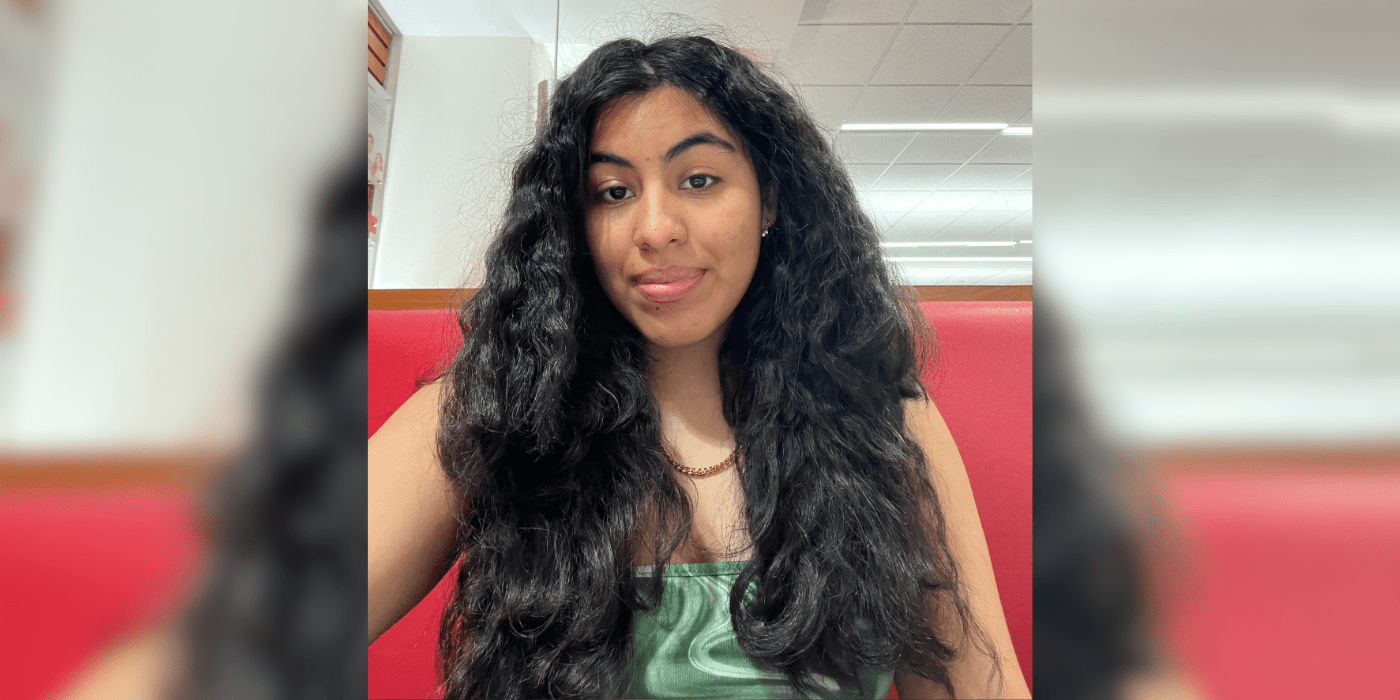
First-generation community health graduate Heydy Herbert BS ’24 has always been a passionate advocate for issues close to her heart. As a student who was undocumented until two years ago, Herbert — an anti-Black racism and disability studies double minor — understands the importance of helping out.
Herbert was awarded a Community Service Award from the SPH Department of Behavioral and Community Health for her “superior commitments and contributions to the well-being of a community,” per the award description. Next up, she plans on completing a master’s in global health with a concentration on child and maternal health at Emory University.
What inspired you to pursue a degree in community health?
Looking across the departments in public health, community health spoke out to me the most. You really get to learn how to engage with others, and I think that you can’t be in the field of public health without learning how to engage with people.
One thing I really have enjoyed about community health is that we really dive into the many factors that affect health, we talk about things such as racism as a public health issue. These conversations are crucial and important. To me, people and community are what truly make public health.
As a first-generation student, what does graduating college mean to you and your family?
It’s really important to see students who are first-generation and support them because you don’t get to see students like myself graduate as much as others. I’ve faced imposter syndrome a lot throughout my college years. Having the ability to actually overcome those comments and being able to submit that final assignment and graduate says a lot about not only that student, but the community that encouraged and helped them along the way.
You won an award for community service. Why is service important to you?
I am very appreciative of the award! When it comes to community service, I have been involved in teaching health education to underrepresented communities in Baltimore. I worked with students from preschool to second grade. My experience was very fulfilling and it even pushed me into wanting to pursue teaching in the future. I’ve also done some volunteer work with high schoolers in Baltimore in regards to college decisions because I think having access to higher education is necessary, but also it might not be the pathway for everyone.
I’ve also been involved in advocacy work, both bringing awareness to undocumented issues but also learning and teaching how to combat anti-Black racism, thanks to my minor. Advocacy as a whole – including through protest, learning, and raising awareness – is very important to me.
What is your favorite memory in the School of Public Health?
One of my most memorable things was being able to do my own research on an issue I’m passionate about as part of the honors behavioral community health program. I was able to do research on how we can repurpose vacant spaces in Baltimore and change them into used spaces.
What advice would you give to other community health students?
Definitely connect with faculty. The school has a lot of faculty that are there to support you. School can get hard at times so getting involved, connecting with people and asking for help helps a lot.